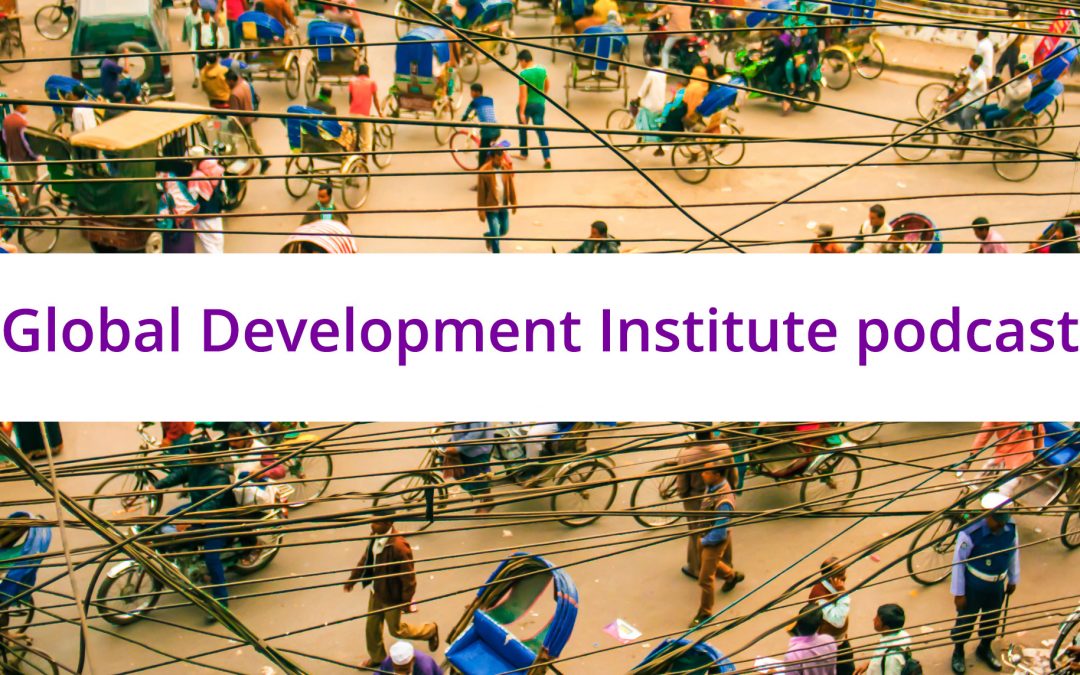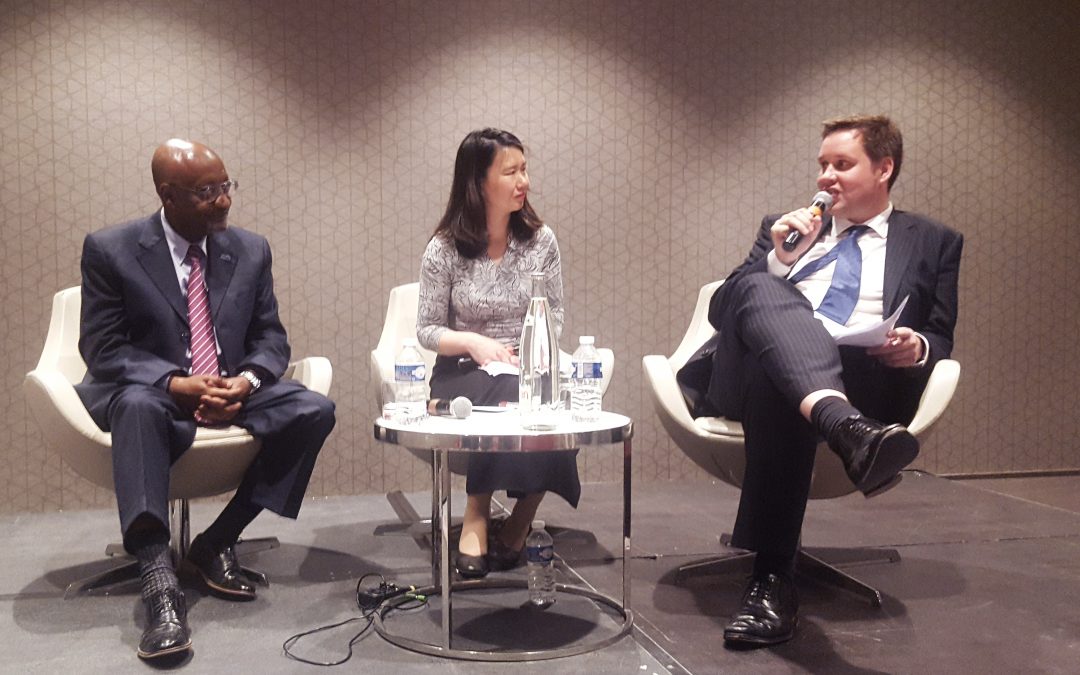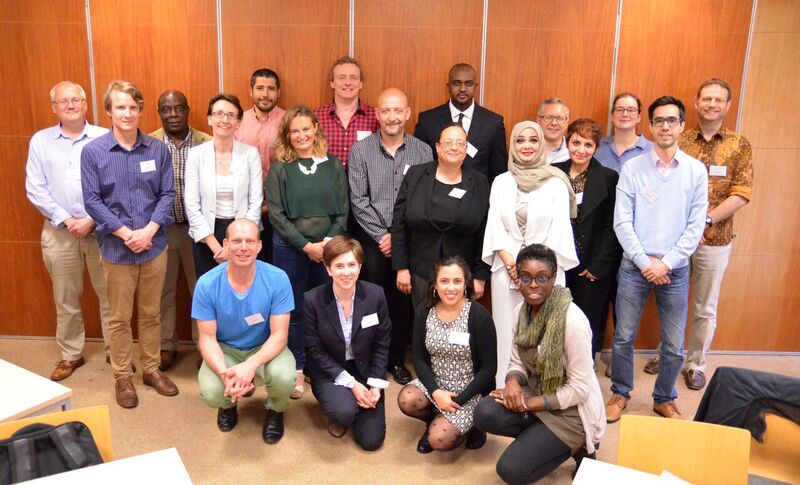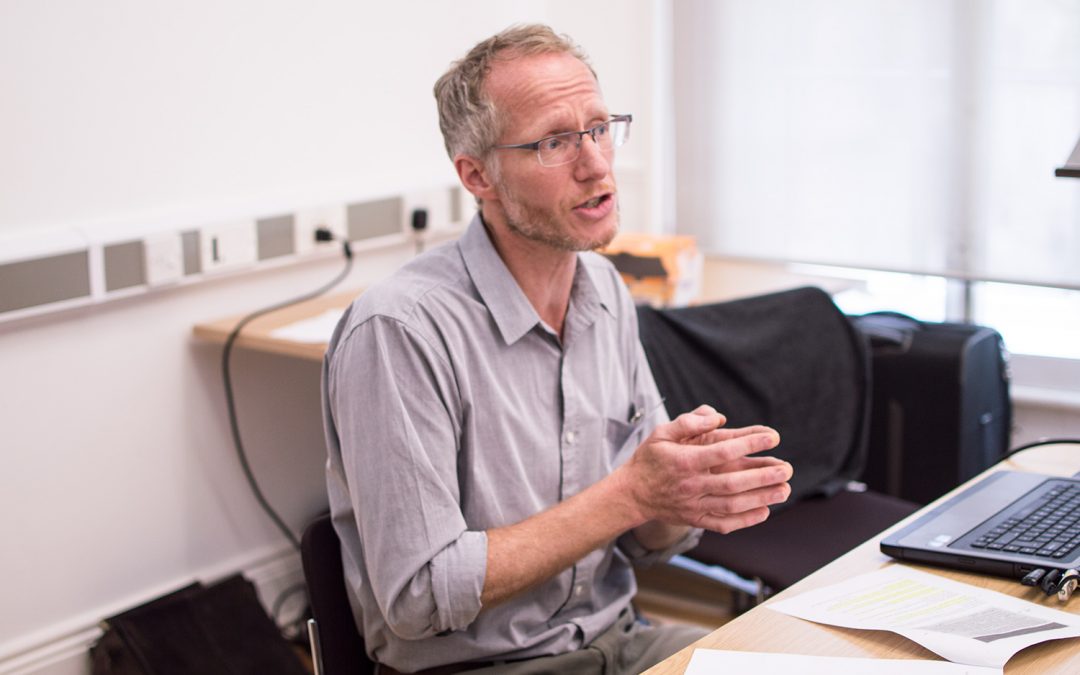
How are Digital Financial Services used by poor people in Bangladesh?
By Stuart Rutherford, Honorary Research Fellow at The Global Development Institute
In developing countries like Bangladesh, Digital Financial Services (DFS) usually refers to transactions made over the mobile phone, using variants of the system pioneered in Kenya by m-Pesa.
There is much optimism that DFS can revolutionise financial inclusion: for example, the incoming CEO of CGAP recently said that ‘what took banks over 100 years to do in Africa has been achieved by mobile operators in 10’. Others are far more cautious, pointing out that just having a mobile money account doesn’t mean someone is ‘financially included’ and that the range of services offered by DFS still falls short of the real needs of low-income people.
In this context, we looked at what the Hrishipara Daily Diaries show us about DFS use in central Bangladesh: read more…

Global Development Institute launches its brand new podcast
The Global Development Institute (GDI) has launched a brand new podcast series bringing listeners the latest thinking, insight and debate in development studies. The series will feature lectures, seminars and workshops from across the Institute as well as discussions between world leading experts in development studies.
The first few episodes are online and include GDI Executive Director Prof David Hulme on his book, ‘Should Rich Nations Help the Poor?’ and Director of the International Centre for Climate Change and Development (ICCCAD) Dr Saleemul Huq on how the least developed countries are negotiating climate change with the UN.
Upcoming episodes will feature a lecture from Prof Richard Heeks on the move from ICT4D to ‘Digital Development’ and a conversation between Prof Diana Mitlin and Dr Mercedes González de la Rocha on urban development and inequalities.
If you have any topics or GDI academics you’d like to hear from then let us know!
You can subscribe to the podcast on

What factors affect the occurrence of crimes against women in India?
By Geetika Dang, Vani S. Kulkarni and Raghav Gaiha
One in three women throughout the world experience physical and/or sexual violence from a partner. In South Asia, the figure rises to nearly 40%.
In India, the incidence of serious crimes against women, including rape, kidnapping and abduction, dowry deaths, and cruelty by husbands and relatives, rose by about a third between 2001 and 2015, according to National Crime Records Bureau reports. Of the 313 crimes committed against women in India each day in 2015, around 30% were instances of rape (including the intent to rape).
Yet, the conviction rate for crimes against women is low, currently at 21%. The high and rising number of crimes committed against women combined with the fact that most of the perpetrators remain free, shows that women in India are very vulnerable to serious violent and sexual crime. However, the vulnerability of women varies enormously across states. read more…

Learning from local experts in Bangladesh
by Anja Ruehlemann
While I was doing my Masters in International Development at The University of Manchester my mentor Dr Joanne Jordan not only triggered my passion for climate change topics, but also laid the path to one of my most memorable experiences. The Manchester-Dhaka exchange programme, recently established by Dr Jordan, gave me the exciting opportunity to explore a new culture and apply my theoretical knowledge at the International Centre for Climate Change and Development (ICCCAD) in ‘disaster prone Bangladesh’. So, after finishing my dissertation on the impacts of culturally created vulnerabilities and perceptions on climate risks, I was ready to leave the comforts of Manchester to throw myself into a buzzing new world.
Truth be told, when I arrived in Dhaka I was exceptionally overwhelmed during my first few days; not just because my white skin drew a lot of attention, but I constantly jumped away from cars and rickshaws, nearly fell through huge holes in the pavement into the sewers, stumbled over goats on my way to work every morning and had to haggle down the ‘white skin tax’ while being soaked in my own sweat after hardly taking a step out of our guesthouse. What didn’t seem pleasant in the beginning became, however, a beloved new home where I was surrounded by the most welcoming people I have ever encountered. read more…

Inspiring alumni give GDI students an insight into their success
Amelia Olvera De la O, MSc Public Policy and Management ‘17, Nayaret Inaipil Leal, MSc Public Policy and Management ‘17
On a warm Friday evening in May, we joined 130 of our fellow postgraduate students on fieldwork from the Global Development Institute at our hotel in Paris, France. We had gathered to meet two outstanding alumni of The University of Manchester and get career advice. Most of us were initially a little sceptical. Could two very successful men from different countries with very different pathways from most of us really give us relevant insights into how to succeed in our careers?
As the speakers introduced themselves, we got to know Mr. Getachew Engida, Deputy Director-General of UNESCO and Mr. Christopher Sharrock, Ambassador and Permanent Representative of the United Kingdom to the OECD, both now settled in Paris and remarkable members of the Manchester alumni network. Our initial thoughts quickly gave way as we listened in. read more…

Staff Spotlight: Dr Tom Gillespie
Dr Tom Gillespie joined GDI in January 2017 as Lecturer in International Development, and holds a PhD from the University of Leeds. His research looks at urban development, and we chatted with him about how that research relates to global inequalities and his upcoming fieldwork in Accra, Ghana.
What does your research focus on?
I study global urban development. We live in an increasingly urban world, and this raises important questions about who and what cities are for. I’m interested in how people living in cities use urban space and how those uses become threatened as this same space becomes an increasingly valuable commodity and a target for speculative activities. I’m also interested in how city dwellers take collective action to defend their access to urban space. All of this relates to the question of whether cities are for people or for profit.
Why is urban development an important topic to research?
Rapid urbanisation around the world is raising pressing questions about how are we are going to house growing urban populations and provide them with decent work, sanitation, water, and so on. And this is often particularly challenging in the Global South, where, in some cases, urban growth is occurring without industrialisation. This means that when people move into cities, there may not be job opportunities for them. In addition, in many cities in the Global South both state and market have failed to provide low-income city dwellers with decent housing and basic services. It is increasingly important that we understand and get to grips with these issues as we now live in a world in which more people live in urban than rural areas. read more…

Can artistic endeavours enhance research? Migration Lab at the MIF17
Dr Cathy Wilcock – Migration Lab Co-ordinator and Researcher
This post originally appeared on the Migration Lab blog
The Manchester International Festival 2017 is in full swing. The festival specialises in commissioning new creative work and each year Manchester hosts world premieres of original work. At MIF17, the commissioned works have been based around four themes, one of which is ‘migration, movement and debate’. ToGather, Returning to Reims, One of Two Stories or Both, the Welcoming Party, What is the City but the People? all tackle issues of home, belonging, borders and identity.
As well as their international commissions, the festival has also commissioned 50 Manchester-based artists to produce short digital works which respond to the festival’s main programme. My secret life as a songwriter and musician enabled me to take part as one of the ‘Creative50’. This gave me an opportunity to combine my two main interests: migration research and song-writing. These two activities have always uneasily co-existed for me. As an early career researcher on a temporary contract, I realise that spending spare time on anything but writing journal articles is poor strategy. Nevertheless, this MIF commission gave me the chance to try both hats on at once, and to see if my artistic projects and research could combine somehow.
For my first commission, I made a poem and accompanying video in response to What is the city but the people? Through engaging with the research of those at UoM working on ‘home’, it was important to me to avoid romanticising Manchester. A home is not always perfect and Manchester has its flaws. In many ways, the negative stereotypes of the city do live out. Despite this, there is often a pseudo-divine out-pouring of love for Manchester which I wanted to explore and tenderly poke fun at. Similarly, there is an interesting ‘unplacing’ of ‘home’ in migration research and I wanted to play on this. In the poem, the places of Manchester are hidden in puns. This is partly a cheeky game but it also is my way of unsettling and playfully deriding the notion of ‘place’ as it relates to ‘home’. read more…

The value of stepping outside your comfort zone: a journey to discovery at the ICCCAD in Dhaka
By Nadine Suliman
If I was told a year ago that I will be living in Bangladesh for a few months to research climate change and development issues, I wouldn’t have believed it. But then I was encouraged by my thesis supervisor, Dr Joanne Jordan, to apply to be a Visiting Researcher at the International Centre for Climate Change and Development (ICCCAD) at the Independent University of Bangladesh. It didn’t take me long to send my application after considering the possibilities that could arise from the six month post, which I began in January after finishing my Master’s degree at the Global Development Institute at The University of Manchester.
It was the perfect opportunity for me after my Master’s, giving me a glimpse of the professional career world, while still maintaining my ties to academia. Having pursued the climate change and development pathway at the Global Development Institute, Bangladesh seemed like the ideal place to be in at the start of my career.
My knowledge of Bangladesh was limited to the few lectures where we discussed the country’s vulnerability to climate change and its overall development status. It seemed unique in comparison to any country I have ever been to, but very far outside my comfort zone. read more…

Launch of ICT4D Research Network in the North of England
Jaco Renken, Lecturer, Information and Communication Technology for Development, Global Development Institute
Are there any benefits to be derived from a regional network that would not readily emanate from a smaller institution-based or a wider global research network?
Colleagues from the Manchester Centre for Development Informatics (CDI) and the Sheffield Digital Technologies, Data and Innovation group (DDI) co-organised an inaugural workshop on the 23rd of June to launch such a regional network for ICT4D researchers in the north of England. Twenty-four participants, from six regional institutions[i], gathered in Manchester to share their research interests and build connections. Following this one day networking event, I have concluded that not all research networks are equal; unique benefits can be derived from a meso-level, regional research network. Here are my reasons : read more…

Gradually unpacking “global development”
Dr Rory Horner, Lecturer in Globalisation and Political Economy
The composition of global inequality is changing. Between-country inequalities, although vast, are mostly falling, while the relative share of within-country inequalities within global inequalities is increasing – what David Hulme and I have recently synthesised as patterns of ‘converging divergence’. New geographies of development are emerging across economic, human and environmental aspects, challenging an assumed divide of a rich, developed North and a poor, developing South. Moreover, it is questionable how much of international development, or its study, would fit with an association of development aid from the Global North to “the poor” in the Global South, driven by a moral geography of charity. While David and I, following others such as Charles Gore, have suggested we may be moving towards an era of global development, we have few elaborations yet as to what that would involve.
Uma Kothari, David Hulme and I recently hosted a small group of leading (mostly UK-based) development researchers to discuss and debate ‘global development’, attempting to understand and explore what it is and its implications. As highlighted below, a lot of questions were raised, with productive scepticism as well as excitement as part of an emerging and intriguing debate as to what global development may involve.
